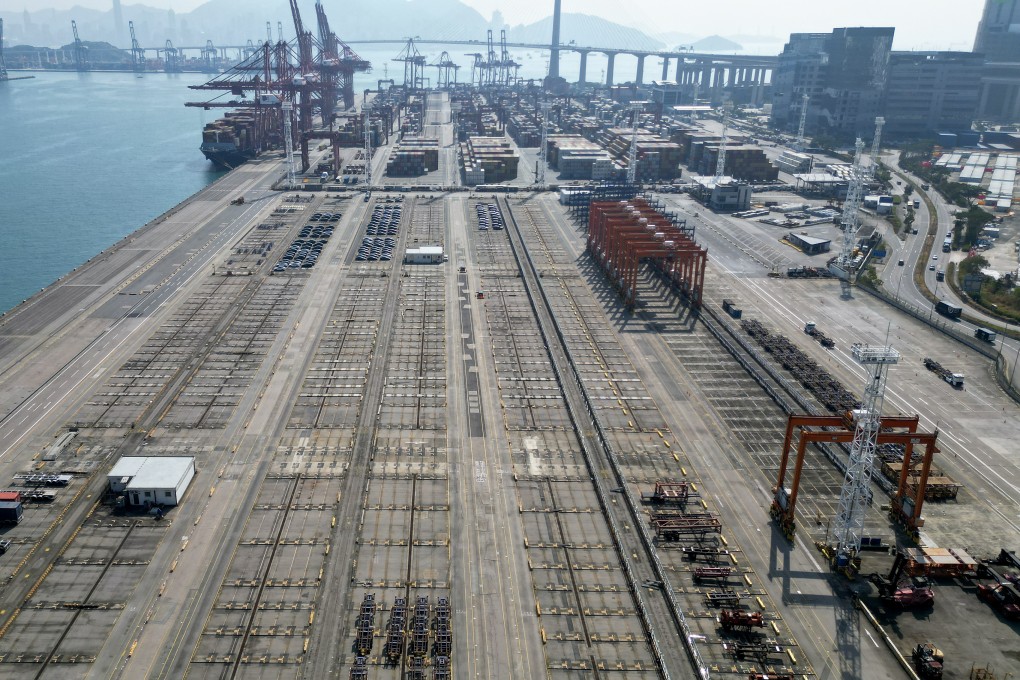Advertisement
Opinion | Hong Kong’s struggling port is an opportunity in disguise
- Hong Kong has slipped down the ranks of the world’s busiest ports, but the city should take this development as a chance for transformation
- Using the land occupied by struggling container terminals for a theme park or fintech hub could help revive the city’s economy and drive collaboration with the Greater Bay Area
Reading Time:3 minutes
Why you can trust SCMP
2

Hong Kong has slipped out of the top 10 on a list of the world’s busiest ports compiled by shipping industry data provider Alphaliner. The city’s port now ranks 11th, after Dubai’s Jebel Ali port. This marks a significant departure from Hong Kong’s prominence as the world’s top container port during much of the 1980s and 1990s.
While the decline in container traffic at the Kwai Tsing Container Terminal is striking, the pertinent question for a mature economy like Hong Kong amid these challenges is not whether the downward trajectory is irreversible but rather how to seize the moment and turn it into an opportunity for transformation.
As the city faces headwinds, it is important to realise that crises often serve as catalysts for innovation and adaptation. Replicating past strategies in the hope of outcompeting neighbouring ports within the Greater Bay Area, such as Yantian and Nansha, is no longer a viable approach.
These competitors offer lower cargo handling fees and are already integrating advanced technology into their operations, enhancing their efficiency. Hong Kong must embrace technological advancements such as big data analytics, automation and artificial intelligence to enhance our efficiency and competitiveness.
Even if the Kwai Tsing Container Terminal did cease operations, the demise of a single port is not a death knell for the entire shipping industry. Hong Kong’s shipping industry encompasses diverse segments, including service-oriented sectors that are less land-dependent and increasingly technology-driven.
Apart from port and terminal operations, shipbuilding, and ship repair and engineering, the other key components of the industry include ship brokerage and acquisition financing, cargo logistics and storage, vessel management, marine insurance, marine risk management and more.
Advertisement
